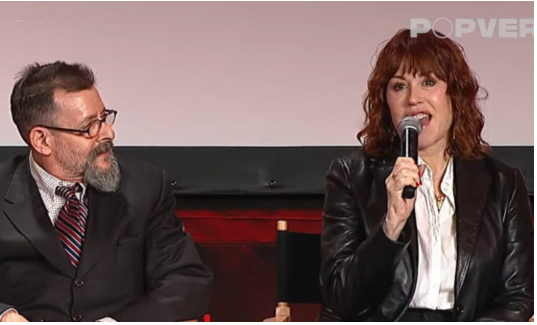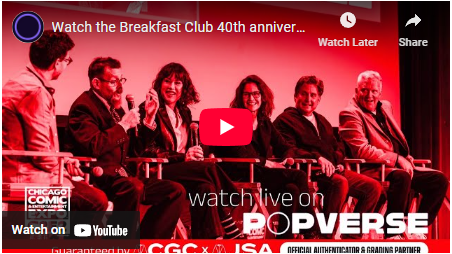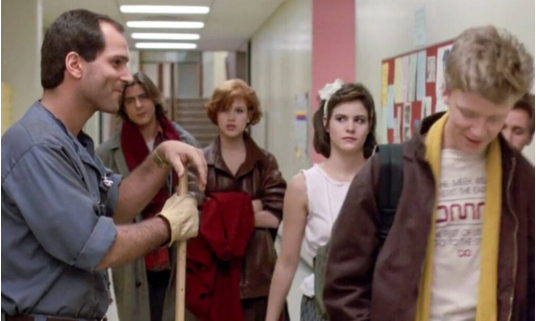For many of us, certain movies leave a lasting impression—and few films define the 1980s quite like The Breakfast Club. This iconic teen drama captured a generation, and at the heart of it was Molly Ringwald, a standout star of John Hughes’ beloved films including Pretty in Pink, Sixteen Candles, and of course, The Breakfast Club.
Recently, the original cast reunited to celebrate the film’s 40th anniversary, reflecting on its cultural impact and the role it played in shaping their lives and careers. But during the nostalgic conversation, Molly Ringwald made a candid remark that sparked controversy among some fans—reminding us that even the most cherished classics aren’t immune to modern-day scrutiny.

While The Breakfast Club remains a cherished favorite for many who grew up in the ’80s, Molly Ringwald didn’t shy away from pointing out what she sees as a flaw in its legacy. During the reunion, she noted that the film was “very white,” a comment that sparked a wave of mixed reactions. Some fans appreciated her honesty, but others were less receptive to the critique, feeling it cast a shadow over a beloved classic.

Molly Ringwald joined her Breakfast Club co-stars, including Judd Nelson and Emilio Estevez, for a special panel in Chicago celebrating the film’s 40th anniversary. During the discussion, she reflected on the movie’s lasting impact—and whether it might be time for a modern reimagining.
“It still resonates with people today,” she said. “I believe in creating films that are inspired by classics, but that also evolve to reflect the world we live in now. The Breakfast Club is, you know… it’s very white.”
She continued, “You don’t see a lot of different ethnicities. We don’t talk about gender. None of that. And I feel like that really doesn’t represent our world today.”
Ringwald emphasized that while she values the original, she hopes to see new stories that are inspired by the film but push boundaries and speak to a more diverse, inclusive generation.
However, once the video clip from the panel began circulating online, the response was swift—and polarizing. Many fans took to social media, some criticizing her remarks as unnecessarily political or labeling her as “woke.” While a few supported her perspective, the overwhelming reaction leaned toward disagreement, with fans defending the film’s legacy.

Some of the backlash online was especially pointed. One user bluntly commented, “Diversity sucks. Take me back,” while another accused Ringwald of trying to tarnish one of the few movies that, in their words, “had people they could actually relate to.” The intense pushback highlighted a cultural divide—not just about the film, but about how we view and critique past media through a modern lens.
This wasn’t the first time Ringwald had voiced concerns about The Breakfast Club. In a 2024 interview with The Times, she revealed that her perspective shifted after rewatching the film with her daughter, Mathilda.
“There’s a lot that I still really love about the movie,” she said, “but there are elements that haven’t aged well—like Judd Nelson’s character, John Bender, who essentially sexually harasses my character. I’m glad we’re at a point where we can look back and say, ‘Things are truly different now.’”
Ringwald’s comments reflect a thoughtful, evolving view of a film that helped define her career—but not everyone is on board. While she’s certainly entitled to her opinion, many fans appear unwilling to revisit a nostalgic favorite through a critical lens.